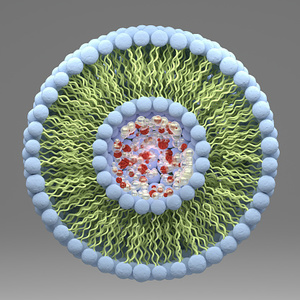Bioplastics, like their petroleum-based counterparts, may contain carcinogenic PFA chemicals which can contaminate soil and groundwater.
Albi Kovatcheva
"Do good as much as I can and live a full life."
POINTS TOTAL
- 0 TODAY
- 0 THIS WEEK
- 726 TOTAL
participant impact
-
UP TO17advocacy actionscompleted
-
UP TO18conversationswith people
-
UP TO17plastic containersnot sent to the landfill
-
UP TO171minutesspent learning
Albi's actions
Study
Say No to Styrofoam
Throughout its life cycle, polystyrene (styrofoam) can harm people, communities, and the planet. I will refuse styrofoam whenever I can, making sure to kindly let people know why I'm asking for alternative packaging.
Study
Estimate Your Ecological Footprint
I will calculate my ecological footprint, and from the results brainstorm and take action on ways I can reduce my annual footprint.
Study
Learn about Plastic Production
Plastic production, not just disposal, pollutes communities and harms people. I will learn about the impacts of plastic production on humans, animals, communities, and the environment.
Family + Pets
Get Rid of Glitter
I will teach my little ones about microplastics while we do a craft project together using glitter alternatives.
Study
Plastic History Buff
Single-use plastics are everywhere, but that wasn't always the case. I will spend at least 15 minutes learning about the history of single-use plastics and how it became ubiquitous in our daily lives.
Bedroom
Practice Sustainable Fashion
I will spend 15 minutes learning about the costs of fast fashion and begin trying to practice sustainable fashion in my own life.
Community
Tour A Waste Management Facility
I will spend at least 30 minute(s) touring (virtually or in person) a local dump/transfer station, material recovery facility, and/or landfill to learn about our local waste and waste recovery streams.
Study
Dig into Bioplastics
I will spend at least 30 minutes researching the impacts of bioplastics and how to properly dispose of them in my city, and I will share this information with 2 friends, family, and/or colleagues.
Community
Learn about Environmental Justice
Using the action resource links below, my family will spend 5 minutes learning about environmental justice, causes of environmental injustice, and how plastic waste disproportionately impacts already vulnerable communities.
Study
Follow the Chasing Arrows
The chasing arrows symbol we associate with recycling doesn't always actually mean something is recyclable. I will spend at least 5 minutes learning the different meanings the symbol can have.
Study
Numbers Everywhere
The numbers #1-7 on plastics tell us a lot - and can help us be better recyclers. I will learn what these numbers mean and which types of plastics are accepted for recycling in my area.
Community
Become a Recycling Pro
Contamination prevents what is recyclable from being recycled. I will spend 5 minutes researching which materials are accepted by local haulers or drop stations in my community and recycle only those items.
Study
Complete a Waste Audit
I will conduct a waste audit - including recyclables and compost - to understand how much waste I create and where I can reduce the most.
Kitchen
Recycle plastic food containers
I do this on a weekly basis
Participant Feed
-
REFLECTION QUESTIONStudyWhat did you learn about bioplastic production and disposal? Did anything surprise you? Are bioplastics accepted by your city's waste management?
 Albi Kovatcheva 7/24/2023 1:43 PMI learned a lot about bioplastic production and disposal, some information surprised me. Bioplastics are most often PLA, or polylactic acid. They are not necessarily biodegradable or compostable. Also, there are no federal regulations for labeling something as “biodegradable” or “compostable.”Further, many waste processing facilities reject compostable plastics because they are functionally indistinguishable from petroleum-based ones. Additionally, compostable plastics degrade in a specific time frame in specific conditions (> 122F). Also, the plants needed for bioplastics production have a high carbon footprint.
Albi Kovatcheva 7/24/2023 1:43 PMI learned a lot about bioplastic production and disposal, some information surprised me. Bioplastics are most often PLA, or polylactic acid. They are not necessarily biodegradable or compostable. Also, there are no federal regulations for labeling something as “biodegradable” or “compostable.”Further, many waste processing facilities reject compostable plastics because they are functionally indistinguishable from petroleum-based ones. Additionally, compostable plastics degrade in a specific time frame in specific conditions (> 122F). Also, the plants needed for bioplastics production have a high carbon footprint.
Bioplastics, like their petroleum-based counterparts, may contain carcinogenic PFA chemicals which can contaminate soil and groundwater.In the ocean, they break down into bioplastics, just like their petroleum-based counterparts. In the landfill, they may not break down. Or if they do, they may release methane, which is a greenhouse gas 84x more potent than CO2. In the recycling bin, the entire bale me contaminated.PVA (polyvinyl alcohol) plastics can pose the same problems as other bioplastics. However, PVA has a relatively low environmental impact compared to their petroleum-based counter parts. It is non-toxic, including when it degrades.There’s one third-party certification that is widely trusted, and that’s from the Biodegradable Products Institute (BPI). BPI scientifically verifies bioplastic composability. However, one would need access to an industrial composting facility that for sure accepts that specific brand and type of bioplastic, that is otherwise is destined for the landfill.Many times, bioplastics have a greater environmental impact than petroleum-based plastics. That is what surprises me most. And no, my city's waste management does not accept bioplastic for composting. -
REFLECTION QUESTIONStudyWhat did you learn about your ecological footprint by using the calculator? What did or didn't surprise you? What are some ways you will take action to reduce your footprint?
 Albi Kovatcheva 7/05/2023 6:20 AMToday, I calculated my eco footprint, and my results were not surprising. Work is just about 60 miles from home, and I currently live in a studio apartment. My shelter and transportation are not very controllable. However, I recognize that I can make some minor lifestyle changes to reduce it. Currently, I tend to buy locally sourced foods, with most of my produce coming from a farmer's market. During the week, I tend to cook vegetarian foods. One thing I can improve is that I can be more informed and proactive about recycling and in using more eco-friendly products at home. I will work on living in a more socially and environmentally responsible way. We can all improve together.
Albi Kovatcheva 7/05/2023 6:20 AMToday, I calculated my eco footprint, and my results were not surprising. Work is just about 60 miles from home, and I currently live in a studio apartment. My shelter and transportation are not very controllable. However, I recognize that I can make some minor lifestyle changes to reduce it. Currently, I tend to buy locally sourced foods, with most of my produce coming from a farmer's market. During the week, I tend to cook vegetarian foods. One thing I can improve is that I can be more informed and proactive about recycling and in using more eco-friendly products at home. I will work on living in a more socially and environmentally responsible way. We can all improve together.-
 Kristina Merola 7/05/2023 7:11 PM
Kristina Merola 7/05/2023 7:11 PM
-
-
 Albi Kovatcheva 7/03/2023 1:29 PMToday is my first day of the plastic free ecochallenge 2023. The educational material and action suggestions are edifying. I think this will be a very educational and enjoyable experience
Albi Kovatcheva 7/03/2023 1:29 PMToday is my first day of the plastic free ecochallenge 2023. The educational material and action suggestions are edifying. I think this will be a very educational and enjoyable experience -
REFLECTION QUESTIONStudyHow might styrofoam be an environmental justice and/or environmental racism issue in your community?
 Albi Kovatcheva 7/03/2023 1:26 PMPolystyrene, a.k.a Styrofoam, is non-recyclable, ubiquitous, and leaches hazardous, carcinogenic, teratogenic, ozone-depleting chemicals into the environment. Most hazardous waste sites, such as landfills, tend to be located in underprivileged, minority communities. Therefore, communities of color and other low income communities face a disproportionate risk of exposure to pollution and related health conditions from Styrofoam and other contaminants as well.
Albi Kovatcheva 7/03/2023 1:26 PMPolystyrene, a.k.a Styrofoam, is non-recyclable, ubiquitous, and leaches hazardous, carcinogenic, teratogenic, ozone-depleting chemicals into the environment. Most hazardous waste sites, such as landfills, tend to be located in underprivileged, minority communities. Therefore, communities of color and other low income communities face a disproportionate risk of exposure to pollution and related health conditions from Styrofoam and other contaminants as well.